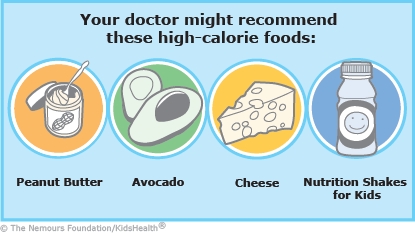Normally, growing kids and teens gain weight. If they lose weight or aren't gaining weight as expected, it's important to understand why. Your health care provider talked to you and your child and did an exam. They gave you instructions to help find out why your child is losing weight. Follow up as instructed to make sure your child is gaining weight normally again.


Follow your health care provider's instructions for:

Your child:

What causes weight loss in kids? Weight loss can happen because of things like:
Where can families get help with food? Government programs (such as WIC, SNAP, National School Lunch Program, Summer Food Service Program, and the National Hunger Hotline) can provide food at home and/or school. Ask your health care provider, talk to a social worker, ask at your child's school, or go online to find these programs. You also can look online or in your local newspaper for community programs, such as local food banks and meal programs.